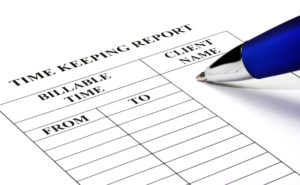When an organization is born, so are its processes. Without document management software and other proprietary technology, accounting department personnel and CPAs alike are more susceptible to revenue-losing processes than knowledge workers in other industries. What’s more, many OPEX (operating expenses) are hidden and difficult to readily identify at the accounting level of an organization.
However, once an accounting team has identified paper as the source of its operational inefficiency, we’ve come to know as a document management software vendor that they are almost always flabbergasted by how they could’ve failed to identify paper as such a tremendous revenue-roadblock. In fact, James Blaylock founded eFileCabinet as a CPA in 2001 to overcome the roadblocks of paper. By analyzing the following revenue roadblocks as they pertain to operating expenses, accounting professionals can leverage part of their budget to afford the right proprietary software:
- Post Phone Call File Retrieval, Failure to Create More Billable Hours
 When you’re an accounting professional (especially a CPA), you know it’s rarely a good thing when the phone rings; the receiver flares up redly and quickly, much like the ill temper of whomever is at the other end. Begrudgingly and hesitantly, you pick up the phone, and someone needs you to send them a file. This is often a point of frustration for accountants relying on paper-dependent processes because they know time spent searching for a file doesn’t equate to time in billable hours. Therefore, as an accountant selling time, it’s in your best interest to find that file as quickly as possible so you can spend more time selling the expertise for which clients really need you.
When you’re an accounting professional (especially a CPA), you know it’s rarely a good thing when the phone rings; the receiver flares up redly and quickly, much like the ill temper of whomever is at the other end. Begrudgingly and hesitantly, you pick up the phone, and someone needs you to send them a file. This is often a point of frustration for accountants relying on paper-dependent processes because they know time spent searching for a file doesn’t equate to time in billable hours. Therefore, as an accountant selling time, it’s in your best interest to find that file as quickly as possible so you can spend more time selling the expertise for which clients really need you.
Given that nearly all knowledge workers (particularly accountants) spend 30-40% of their time searching for information, it’s important to have a software on-site or in the cloud that offers metadata-driven file retrieval features, which make finding information both simple and fast. Although the extra time it takes to retrieve files from a filing cabinet may seem minimal, it becomes extremely costly once compounded over the course of weeks, months, and years.
- Unpredictable Hours
 As the CPA’s and accounting professional’s roles are augmented to include more comprehensive financial services, so are the hours these professionals spend on the clock. Although it’s a good thing that the average person trusts his or her accountant to accomplish more for them than ever, it also puts additional strain on the accountant to provide services while not in the office. And, given that most people wait until last minute to call their accountants when they need something, they expect speed in meeting requests, which mobile apps for document management software facilitate. Although some may feel the accessibility that comes with cloud-based mobile apps impinges the security of software, most SaaS products have built-in security features that make the compromising of information nearly impossible while still retaining the functionality, responsiveness, and accessibility of information that accountants demand due to client requests.
As the CPA’s and accounting professional’s roles are augmented to include more comprehensive financial services, so are the hours these professionals spend on the clock. Although it’s a good thing that the average person trusts his or her accountant to accomplish more for them than ever, it also puts additional strain on the accountant to provide services while not in the office. And, given that most people wait until last minute to call their accountants when they need something, they expect speed in meeting requests, which mobile apps for document management software facilitate. Although some may feel the accessibility that comes with cloud-based mobile apps impinges the security of software, most SaaS products have built-in security features that make the compromising of information nearly impossible while still retaining the functionality, responsiveness, and accessibility of information that accountants demand due to client requests.
- The Shared Drive
 If there was ever a technology that persisted within organizations despite being outdated, it’s the shared drive. Not only does the shared drive have extremely limited security features, it lacks the collaborative capacity necessary to optimize teamwork and project processes for accountants. As accounting becomes increasingly client-centric, many accountants need to travel outside the office, and the shared drive doesn’t let its users access files outside the office, hindering the responsiveness of accountants. To make matters for the shared drive even worse, it allows anyone to name any file in the way they see fit, making for arbitrary file naming and, therefore, difficulty for others in retrieving that information when needed. If your accounting department or firm relies on the shared drive to complete projects, collaborate, and uphold compliance, it may be worth checking out this infographic to justify an upgrade to software that puts you on par with industry performance standards.
If there was ever a technology that persisted within organizations despite being outdated, it’s the shared drive. Not only does the shared drive have extremely limited security features, it lacks the collaborative capacity necessary to optimize teamwork and project processes for accountants. As accounting becomes increasingly client-centric, many accountants need to travel outside the office, and the shared drive doesn’t let its users access files outside the office, hindering the responsiveness of accountants. To make matters for the shared drive even worse, it allows anyone to name any file in the way they see fit, making for arbitrary file naming and, therefore, difficulty for others in retrieving that information when needed. If your accounting department or firm relies on the shared drive to complete projects, collaborate, and uphold compliance, it may be worth checking out this infographic to justify an upgrade to software that puts you on par with industry performance standards.
- Disaster Mitigation, Data Backup/Redundancy
 Given the recent fires in San Bernardino California, recent floods in Louisiana, and the fact that many regions of the United States are overdue for an earthquake, disaster mitigation and data storage have become hot topics in the accounting world. These natural disasters have destroyed dozens of paper-dependent businesses. However, with data redundancy and storage in multiple points of presence and SSAE (Statement on Standards for Attestation Engagements) 16 intact, document management software ensures business continuity in the face of disasters that would otherwise put SMBs out of business. This is particularly important for CPAs, as they deal with a small number of clients, and rely upon these clients’ attestation of their skills to secure more business referrals. When these clients’ information is lost or destroyed by a disaster or even an office break-in reestablishing loyalty is difficult without the proper document management software tools in place.
Given the recent fires in San Bernardino California, recent floods in Louisiana, and the fact that many regions of the United States are overdue for an earthquake, disaster mitigation and data storage have become hot topics in the accounting world. These natural disasters have destroyed dozens of paper-dependent businesses. However, with data redundancy and storage in multiple points of presence and SSAE (Statement on Standards for Attestation Engagements) 16 intact, document management software ensures business continuity in the face of disasters that would otherwise put SMBs out of business. This is particularly important for CPAs, as they deal with a small number of clients, and rely upon these clients’ attestation of their skills to secure more business referrals. When these clients’ information is lost or destroyed by a disaster or even an office break-in reestablishing loyalty is difficult without the proper document management software tools in place.
- Securing Data at Rest and in Transit
 Data breaches are not just the byproduct of email as a form of information interchange, they also occur frequently in the form of an internal information breach. As professionals working in a client-intensive industry, accountants need to appease the breach fears running rampant in public opinion, and for good reason: 2015 and 2016 have proven that hacks and data breaches are inevitable without the tools in place to prevent them. In overthrowing the breach-susceptibility of email content, document management software offers a secure socket layer (SSL), bank-grade, 256-bit encryption in the form of client sharing portals, allowing accountants to protect their clients’ sensitive information.
Data breaches are not just the byproduct of email as a form of information interchange, they also occur frequently in the form of an internal information breach. As professionals working in a client-intensive industry, accountants need to appease the breach fears running rampant in public opinion, and for good reason: 2015 and 2016 have proven that hacks and data breaches are inevitable without the tools in place to prevent them. In overthrowing the breach-susceptibility of email content, document management software offers a secure socket layer (SSL), bank-grade, 256-bit encryption in the form of client sharing portals, allowing accountants to protect their clients’ sensitive information.
Not only are these client sharing portals highly secure when compared to email, they are also faster and easier to use. You’ll never have to send an email attachment again with one of these portals intact, and the sophisticated security they offer gives CPAs’ clients an inside look at the seriousness with which the accountants handle sensitive information, giving the accounting department or firm a positive reputation and client user experience that is bound to attract a bigger and better book of business.
Latest posts by Matt Lichtenwalter (see all)
- 3 Productivity Hacks That Will Save Your Sanity at the Office in 2017 - May 3, 2017
- Using Document Management to Ensure Accounting Business Continuity - February 2, 2017
- The Document Management System Features of Tomorrow - January 9, 2017




